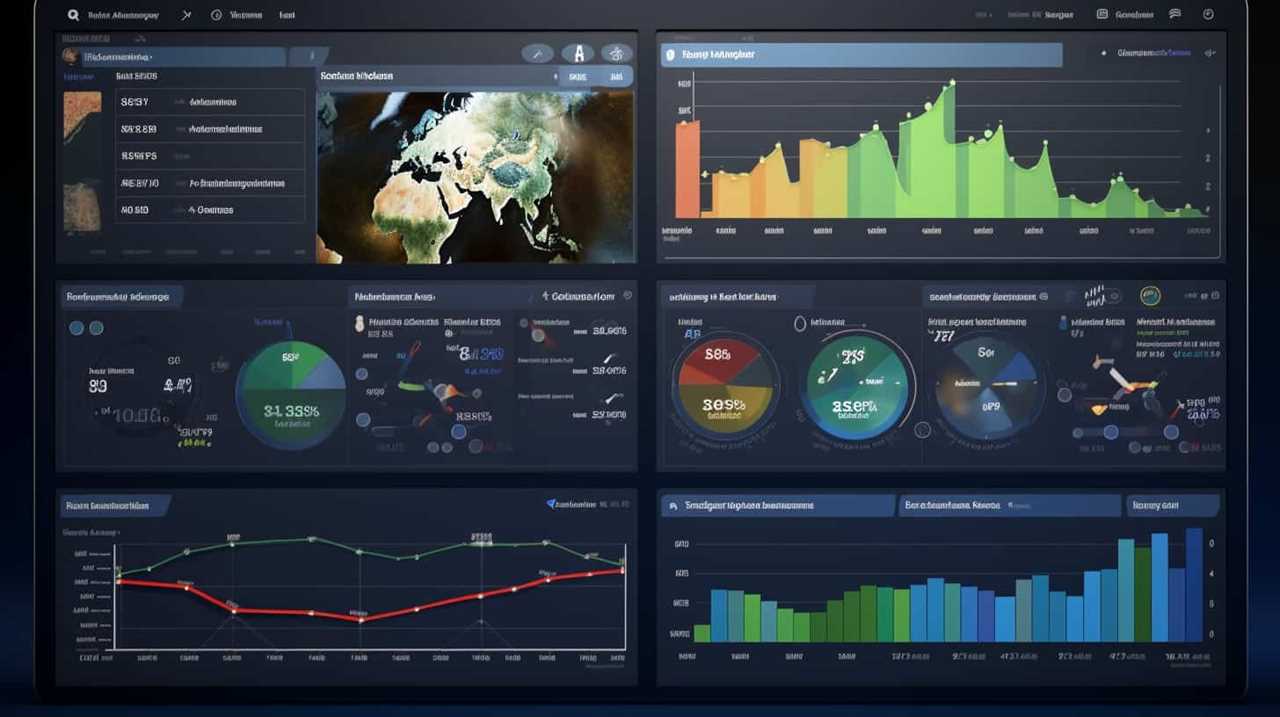Are you overwhelmed by the intricacies of SEO? Don’t worry, we’re here to help!
In this article, we’ll break down the enigma that is Technical SEO and show you how it can set you free. We’ll explain the importance, key components, and benefits of implementing Technical SEO.
Plus, we’ll steer you away from common issues and share best practices to optimize your website.
Get ready to liberate your online presence with Technical SEO!

Key Takeaways
- Technical SEO significantly improves website performance and user experience.
- It optimizes elements like website speed, mobile-friendliness, crawlability, and site structure.
- Technical SEO increases website visibility and ranking on search engine result pages (SERPs).
- It attracts more organic traffic to the website.
Importance of Technical SEO
The Importance of Technical SEO lies in its ability to significantly improve website performance and enhance user experience. When it comes to optimizing your website for search engines, implementing effective SEO techniques and strategies is essential.
Technical SEO focuses on the technical aspects of your website that impact its visibility and ranking on search engine result pages (SERPs). By optimizing elements such as website speed, mobile-friendliness, crawlability, and site structure, you can ensure that search engines can easily understand and index your website.
This, in turn, improves your website’s performance, making it faster and more user-friendly. Additionally, a well-optimized website is more likely to rank higher in search engine results, increasing its visibility and attracting more organic traffic.
Key Components of Technical SEO
To fully understand and implement Technical SEO, it’s important to familiarize ourselves with the key components that play a crucial role in optimizing website performance and search engine rankings.

Here are two sub-lists that highlight the essential elements of Technical SEO:
- On-page optimization:
- Keyword research and optimization: Conduct thorough keyword research to identify relevant keywords and incorporate them strategically throughout your website’s content.
- Meta tags optimization: Optimize meta titles, descriptions, and headers to improve search engine visibility and user experience.
- Technical website optimization:
- Site speed optimization: Improve website loading speed by optimizing images, minifying code, and leveraging caching techniques.
- Mobile optimization: Ensure your website is mobile-friendly and responsive to provide a seamless user experience on all devices.
By implementing these SEO techniques, you can enhance your website’s performance, increase organic traffic, and achieve higher search engine rankings.
Benefits of Implementing Technical SEO
Implementing Technical SEO offers several significant benefits to improve website performance and increase organic traffic. By implementing Technical SEO strategies, website owners can enhance their website’s visibility, usability, and overall user experience. Here are some key benefits of implementing Technical SEO:
| Benefits of Technical SEO |
|---|
| Improved website speed |
| Enhanced crawlability |
| Better indexability |
| Increased mobile-friendliness |
Improving website speed ensures that visitors have a seamless experience and reduces bounce rates. Enhanced crawlability helps search engine bots navigate and index the website effectively, leading to better visibility in search results. Better indexability ensures that all relevant pages are included in search engine indexes. Lastly, optimizing for mobile-friendliness is crucial as mobile usage continues to rise.

Common Technical SEO Issues to Avoid
To effectively address technical SEO concerns, we must be vigilant in identifying and resolving common issues that can hinder website performance and organic visibility. Here are some common technical SEO mistakes to avoid and some troubleshooting tips to help you overcome them:
- Improper website structure:
Ensure that your website has a logical and organized structure that makes it easy for search engines to crawl and understand. - Slow page load speed:
Optimize your website’s performance by compressing images, minifying CSS and JavaScript files, and using caching techniques.
These issues can greatly impact your website’s visibility and user experience. By addressing them, you can enhance your site’s performance and increase its chances of ranking higher in search engine results.
Now, let’s move on to the next section where we’ll discuss the best practices for technical SEO.
Best Practices for Technical SEO
Our team recommends implementing several key best practices for technical SEO to optimize website performance and increase organic visibility. By following a technical SEO checklist and utilizing the right technical SEO tools, you can ensure that your website is optimized for search engines and provides a seamless user experience. Here is a table outlining some of the best practices for technical SEO:

| Best Practices for Technical SEO | Benefits |
|---|---|
| Implementing structured data | Enhance search engine visibility and click-through rates |
| Optimizing website speed | Improve user experience and decrease bounce rates |
| Fixing broken links | Enhance user experience and maintain website authority |
| Optimizing URL structure | Improve website crawlability and increase keyword relevance |
| Implementing XML sitemaps | Assist search engines in indexing and understanding website content |
Frequently Asked Questions
How Does Technical SEO Differ From Other Types of SEO?
Technical SEO differs from other types of SEO by focusing on optimizing the technical aspects of a website to improve its visibility in search engines. It involves optimizing elements like site speed, mobile-friendliness, URL structure, and crawlability. Technical SEO vs On Page SEO and Technical SEO vs Off Page SEO.
What Are the Potential Drawbacks or Risks of Implementing Technical Seo?
The potential drawbacks or risks of implementing technical SEO can include increased complexity, potential for errors, and the need for ongoing maintenance. However, these challenges can be mitigated with proper planning and monitoring.
Are There Any Industries or Types of Websites That Do Not Need Technical Seo?
There are industries or types of websites that may not need technical SEO, but it is beneficial for non-commercial websites to optimize their technical elements to improve user experience and increase visibility.
How Long Does It Typically Take to See the Results of Technical SEO Efforts?
Measuring the effectiveness of technical SEO efforts is crucial. Factors like website size, crawlability, and competition can affect the speed of seeing results. It typically takes a few weeks to several months.

What Are Some Advanced Techniques or Strategies for Optimizing Technical Seo?
When it comes to optimizing technical SEO, we’ve got some advanced techniques up our sleeves. From schema markup to XML sitemaps, we’ll share the best practices that’ll make your website soar.
Conclusion
In conclusion, understanding and implementing technical SEO is crucial for the success of any website. By addressing key components such as site speed, mobile optimization, and structured data, businesses can improve their search engine rankings and enhance user experience.
Avoiding common technical SEO issues and following best practices will ensure that websites are easily crawled and indexed by search engines. Technical SEO is like the backbone of a website, providing the necessary foundation for organic visibility and online success.










